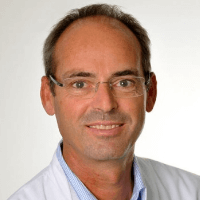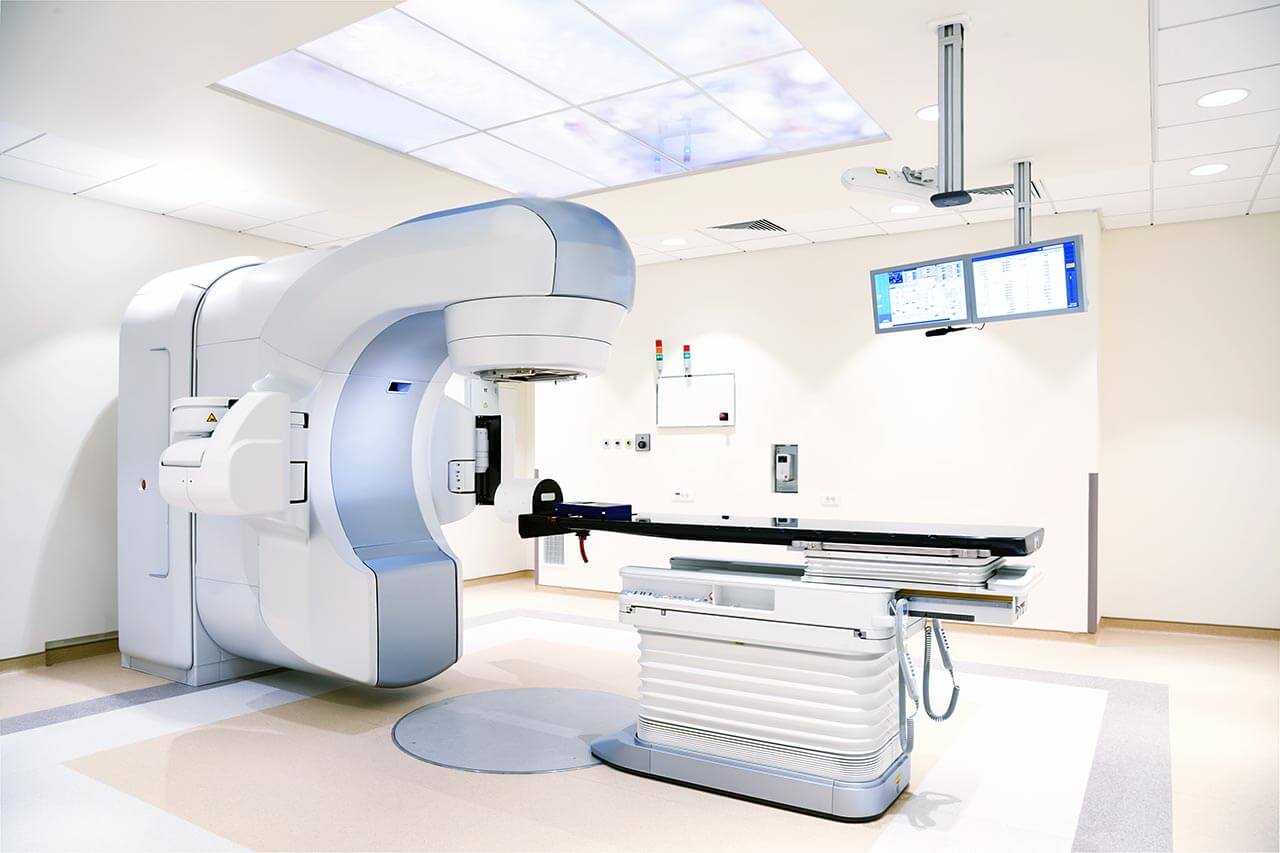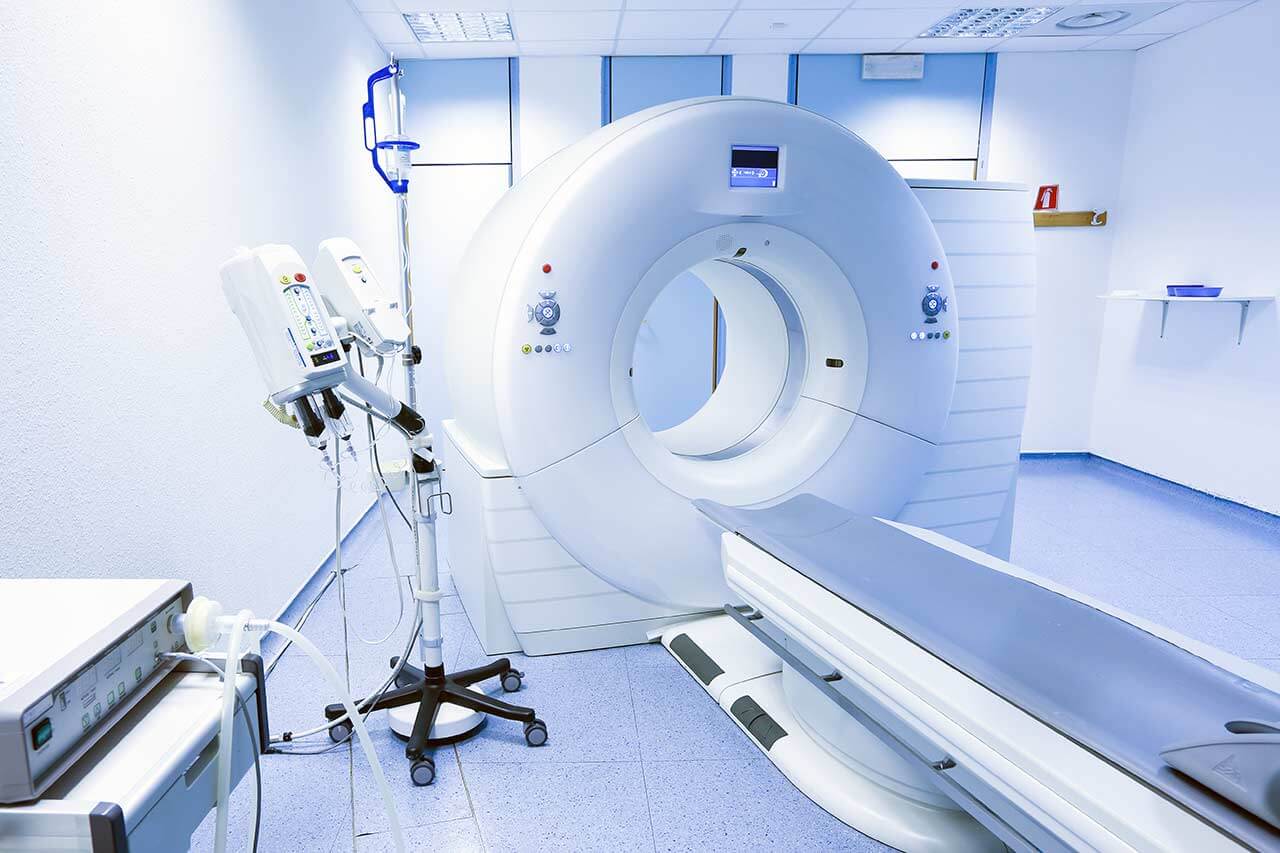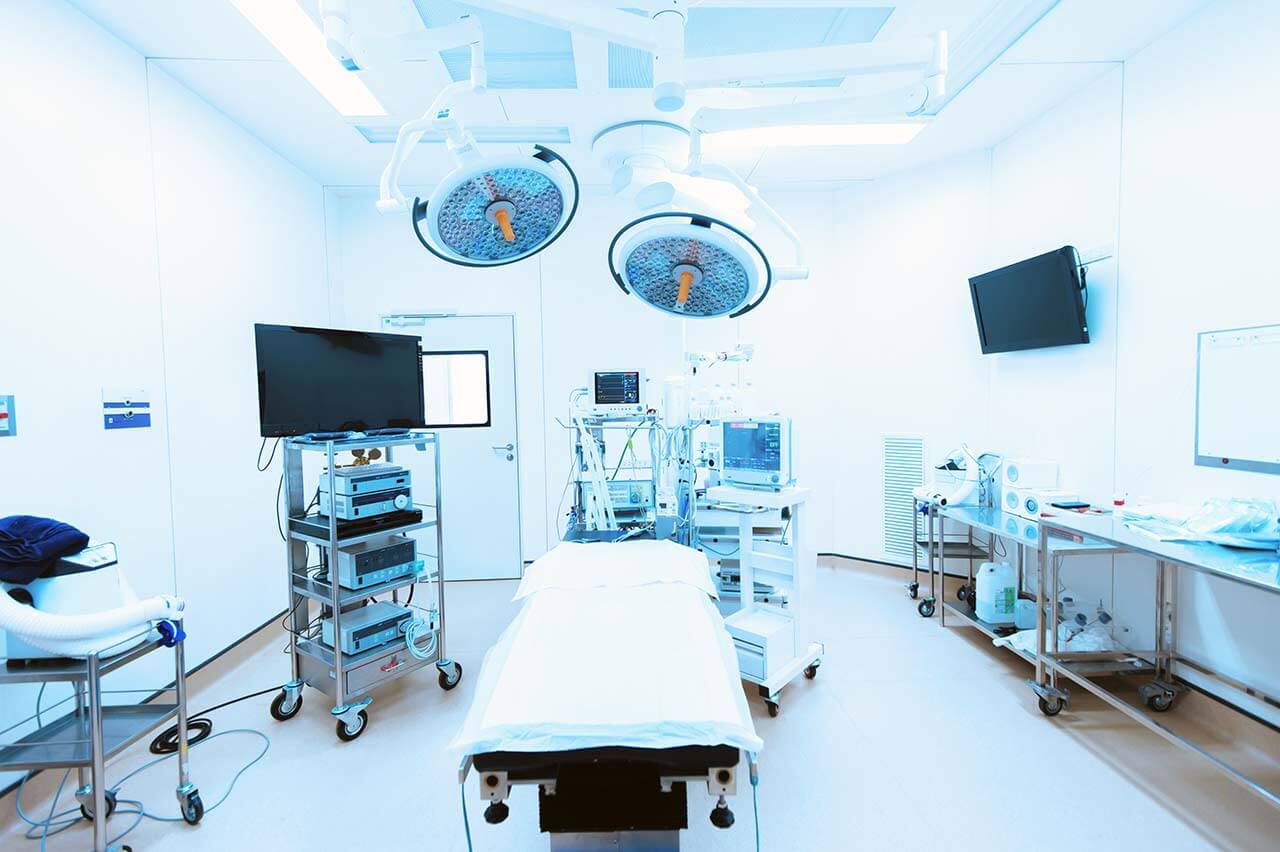
The program includes:
- Initial presentation in the clinic
- clinical history taking
- review of medical records
- physical examination
- laboratory tests:
- complete blood count
- general urine analysis
- biochemical analysis of blood
- inflammation indicators (CRP, ESR)
- indicators blood coagulation
- neurological examination
- CT/MRI scan
- neuropsychological tests (on indications):
- ENMG (electroneuromyography)
- EEG (electroencephalography)
- SEPs (somatosensory evoked potentials)
- VEPs (visually evoked potentials)
- BAEP tests (brainstem auditory evoked potential)
- preoperative care
- neuronavigation-assisted surgical removal
(resection) of astrocytoma - histologically and immunohistochemically
examination of the remote tissues - blood transfusions (if needed)
- 1-day intensive care unit stay
- symptomatic treatment
- control examinations
- the cost of essential medicines and materials
- nursing services
- full hospital accommodation
- explanation of future recommendations
Required documents
- Medical records
- MRI/CT scan (not older than 3 months)
- Biopsy results (if available)
Service
You may also book:
 BookingHealth Price from:
BookingHealth Price from:
About the department
The Department of Neurosurgery at the Hirslanden Clinic St. Anna Lucerne offers the full range of surgical treatment of diseases of the nervous system. The clinical practice is especially focused on the surgical treatment of pathologies of the spine and skull base. Performing both simple and especially complex interventions every day, the neurosurgeons of the department have deep expert knowledge and unique experience. The excellent skills of doctors are complemented by high-tech equipment, including navigation systems, which reduce the risk of trauma to healthy tissues during surgery. The collaboration with regional Neurorehabilitation Centers allows for proper care upon surgical treatment completion. The Chief Physician of the department is Prof. Dr. med. Oliver Nic Hausmann.
The treatment begins with an outpatient consultation with the attending physician and the comprehensive diagnostics, according to the results of which the optimal surgical intervention is planned. The department includes diagnostic rooms with CT and MRI devices of high resolution, operating rooms with cutting-edge surgical microscopes, endoscopic equipment, intraoperative navigation and intraoperative neuromonitoring for controlling the functions of the brain and spinal cord, an innovative Gamma Knife system, a specialized Intensive Care Unit for patients with diseases of the brain and spinal cord, etc. In addition, the department provides pain therapy.
An important role is played by the pleasant and friendly atmosphere in the department. The medical staff pays attention to the needs and wishes of each patient.
The department’s surgical range of services includes:
- Brain surgery
- Treatment of brain tumors
- Treatment of cerebral hemorrhages
- Treatment of hydrocephalus
- Microvascular decompression of the cranial nerves
- Spinal surgery
- Treatment of spinal degenerative diseases, including minimally invasive stabilization and intervertebral disc prosthetics
- Treatment of spinal tumors
- Treatment of spinal injuries
- Treatment of spinal osteoporosis
- Interventional pain therapy for chronic pain syndromes
- Other surgical options
Curriculum vitae
Clinical Interests
- Spinal surgery, including minimally invasive surgical techniques.
- Intervertebral disc prosthetics.
- Stabilization of the spine.
- Spinal and spinal cord tumors.
- Navigation surgery for brain tumors.
- Neurotraumatology.
Professional Career
- 2006 Research Project Manager for Spinal Injury, Swiss Paraplegic Research, Nottwil.
- 2004 - 2008 Scientific Consultant of the Department of Neurosurgery at the University Hospital Basel, Head of the Neurosurgery Laboratory.
- 2003 - 2004 Senior Physician, Department of Neurosurgery, University Hospital Basel.
- September 2002 - November 2002 National Clinic for Neurology and Neurosurgery, Wellington Hospital in London.
- September 2001 - July 2002 Senior Physician, Section of Spinal Surgery at the Department of Orthopedics, University Hospital Balgrist in Zurich.
- May 2000 - August 2001 Paralysis Project (Miami), University of Miami, USA.
- July 1999 - April 2000 Section of Electrophysiology, University Hospital Balgrist in Zurich and Brain Research Institute, University of Zurich.
- April 1997 - June 1999 Department of Neurosurgery, University Hospital Basel.
- 1996 Department of Neurosurgery, Cantonal Hospital Aarau.
- July 1995 - December 1995 Department of Neuroradiology, National Clinic for Neurology and Neurosurgery, London.
- January 1995 - June 1995 Department of Neurology, University Hospital Basel.
- 1993 - 1994 Department of Neurosurgery, University Hospital Basel.
- 1992 Department of Surgery, Hospital in Rhien.
- 1991 Department of Surgery, Cantonal Hospital Bruderholz.
Higher Education and Postgraduate Training
- January 2004 Habilitation and Venia docendi, Faculty of Medicine, University of Basel. Subject: "Neurobiology of spinal cord injuries".
- 2002 Internship in Britain as a Medical Specialist in Neurosurgery.
- 2000 Certification in Neurosurgery, Swiss Medical Association (FMH).
- 1998 European Exam for board certification in Neurosurgery.
- June 1991 Doctorate, Faculty of Medicine, University of Basel.
- 1984 - 1990 Study of Medicine at the Faculty of Medicine of the University of Basel.
Memberships in Professional Societies
- Swiss Society of Neurosurgery.
- Swiss Medical Association (FMH).
- Swiss Society of Spinal Surgery.
- Swiss Society of Neuroscience.
- General Medical Council of London, British Medical Association.
Photo of the doctor: (c) Hirslanden AG
About hospital
The Hirslanden Clinic St. Anna Lucerne is a private medical facility, the primary task of which is to provide excellent quality medical services in accordance with the standards of modern medicine. The history of the clinic has more than 100 years, so it has gained a strong reputation not only in Switzerland, but also far beyond its borders. The level of medical care in the clinic is controlled by a strict quality management system certified according to the requirements of ISO 9001.
The medical complex provides both diagnostics and treatment to about 12,600 inpatients and more than 91,000 outpatients every year. It is worth noting that the clinic is especially popular in the field of obstetrics. There are born about 800 babies in three delivery rooms of the clinic every year. The clinic includes 8 progressive operating rooms for classic open and sparing minimally invasive interventions.
The key areas of specialization of the clinic are orthopedics, spinal surgery, mammology, oncology, obstetrics, neurosurgery, gastroenterology and cardiology. Each medical specialty is represented by a separate department with a highly competent team of experienced doctors with in-depth knowledge in a particular medical field.
In addition to the outstanding quality of medical services, compassionate care and humane attitude, the patients will enjoy a pleasant atmosphere in the clinic itself, as well as beautiful natural landscapes overlooking the green areas and beautiful Lake Lucerne, opening from the windows of the patient rooms of the medical facility.
Photo: (с) depositphotos
Accommodation in hospital
Patients rooms
The patients of the Hirslanden Clinic St. Anna Lucerne live in comfortable rooms made in a modern design. Each patient room has an ensuite bathroom with shower and toilet. The standard patient room includes an automatically adjustable bed with a comfortable orthopedic mattress, a bedside table, a wardrobe, a table and chairs for receiving visitors, a TV. If desired, Wi-Fi can be connected. The clinic also provides enhanced-comfort rooms with a safe, a refrigerator and upholstered furniture.
Meals and Menus
The patient and the accompanying person are offered a daily choice of three menus. If you are on a specific diet for any reason, you will be offered an individual menu. Please inform the medical staff about your dietary preferences prior to the treatment.
Further details
Standard rooms include:
Religion
The religious services can be provided upon request.
Accompanying person
During the inpatient program, an accompanying person may stay with the patient in the room or at a hotel. Our managers will help you choose the most suitable option.
Hotel
During the outpatient program, you can live in a hotel of your choice. Managers will help you choose the most suitable options.





